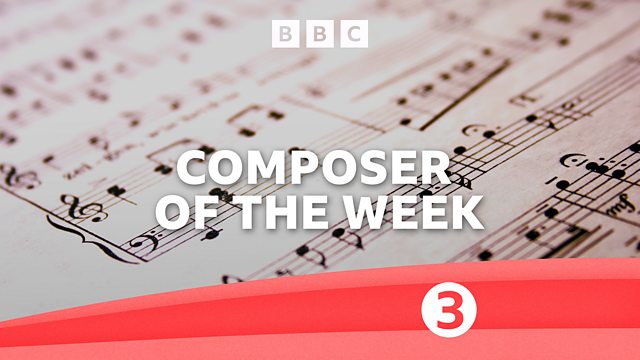
Kraus and a Professional Rivalry
Donald Macleod sees Kraus challenged for his position as the top musician at the Swedish court.
Donald Macleod sees Kraus challenged for his position as the top musician at the Swedish court.
In a first for Composer of the Week, Donald Macleod surveys the life and music of Joseph Martin Kraus. Kraus has been called the Swedish Mozart; he was born in the same year as Mozart, in 1756, and survived him by just 12 months. Originally from Germany, Kraus found work as a composer based at the Swedish royal court and quickly came to be regarded as one of the leading music directors in all Europe. Haydn said that he knew of only two geniuses, Mozart and Joseph Martin Kraus.
Kraus returned to Stockholm in 1786 after an extended Grand Tour of Europe where he had made connections with many of the great composers of the age and encountered their music. He’d also extended his own reputation, and one German journal listed him as one of the six most important composers alive, alongside Mozart and Haydn. All was not well, however, back in Sweden where he now had a rival for his position at court: the composer Abbé Vogler. The situation continued for some years until Vogler was finally dismissed and Kraus could take rightful place, unchallenged. Kraus would eventually be appointed Music Director to the Swedish Court and it was during this period that he really started to make his mark as a composer of opera.
Riksdagsmarsch, VB 154
Orchestra of the Age of Enlightenment
Anthony Halstead, conductor
Piano Sonata in E major, VB 196 (Vivace)
Ronald Brautigam, fortepiano
Soliman II (excerpts from Act II (Nr.6) & Act III (Nr.16-19))
Lena Hoel (Delia), soprano
Barbro Örtendahl-Corin (Roxelane), soprano
Tord Wallström (The Mufti), baritone
Bengt-Ola Morgny (The Dervish), tenor
Chorus and Orchestra of The Royal Opera of Sweden
Philip Brunelle, conductor
Funeral Cantata (Part One)
Hillevi Martinpelto, soprano
Christina Högman, mezzo-soprano
Claes-Håkan Ahnsjö, tenor
Thomas Lander, baritone
Uppsala University Chamber Choir
The Drottningholm Baroque Ensemble
Stefan Parkman, conductor
Produced by Luke Whitlock, for ����ý Wales
Last on
Music Played
-
![]()
Joseph Martin Kraus
Rikdagsmarsch, VB 154
Orchestra: Orchestra of the Age of Enlightenment. Director: Anthony Halstead.- MUSICA SVECIAE : MSCD-419.
- MUSICA SVECIAE.
- 9.
-
![]()
Joseph Martin Kraus
Piano Sonata No 1 in E major VB 196 (Vivace)
Performer: Ronald Brautigam.- BIS : CD-1319.
- BIS.
- 1.
-
![]()
Joseph Martin Kraus
Soliman II (excerpts from Acts 2 & 3)
Performer: Swedish Royal Opera Orchestra. Conductor: Philip Brunelle.- VIRGIN : VC7-914696-2.
- VIRGIN.
- 8.
-
![]()
Joseph Martin Kraus
Funeral Cantata for King Gustavus III - Part one
Ensemble: Drottningholms Barockensemble. Conductor: Stefan Parkman. Singer: Hillevi Martinpelto. Singer: Christina Högman. Singer: Claes-Hakon Ahnsjo. Singer: Thomas Lander. Choir: Uppsala University Chamber Choir.- MUSICA SVECIAE : mscd-416E.
- MUSICA SVECIAE.
- 5.
Broadcast
- Thu 28 Jan 2021 12:00����ý Radio 3
Beethoven Unleashed – the box set
What was really wrong with Beethoven?
Composers A to Z
Who knew? Five eye-opening stories from Composer of the Week
Five reasons why we love Parry's Jerusalem
What is the strange power of Jerusalem which makes strong men weep?
A man out of time – why Parry's music and ideas were at odds with his image...
The composer of Jerusalem was very far from the conservative figure his image suggests.
Composer Help Page
Find resources and contacts for composers from within the classical music industry.





